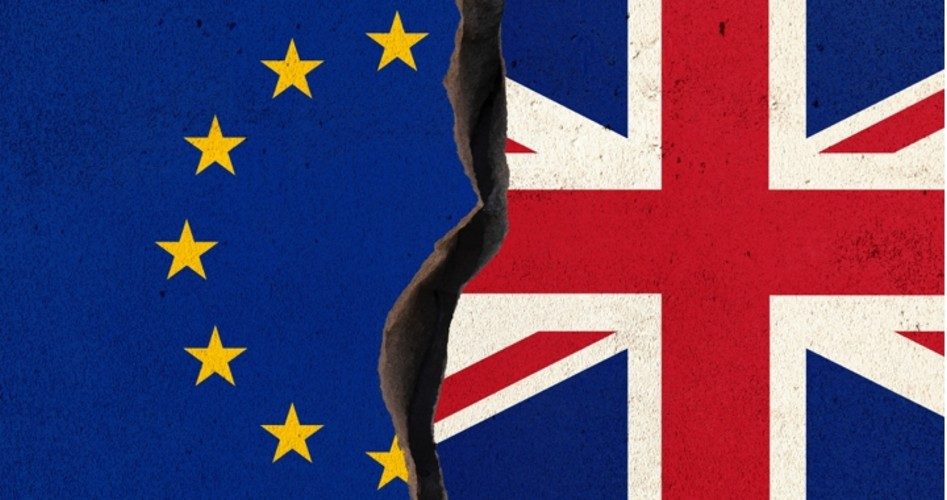
Northern Ireland has again become a lightning rod in the ongoing international tug-of-war that is Brexit. The United Kingdom is set to debate changes to a portion of the Withdrawal Agreement signed in January that address trade between Northern Ireland and the rest of the UK. The proposed legislation prompted an emergency meeting between chief negotiators for the EU and the UK on Wednesday.
The Internal Market Bill, which in part addresses the Northern Ireland Protocol — a provision aimed at assuring there is no hard border between Northern Ireland, which is part of the UK, and the Republic of Ireland, a part of the EU. EU officials claim that the bill has “seriously damaged trust” between the European super-state and the United Kingdom. UK officials insist that the bill is an internal matter between Northern Ireland, Wales, Scotland, and England.
Specifically, the new bill proposes that there will be no new checks on goods that move between Northern Ireland and Great Britain, which includes England, Scotland, Wales, and various islands surrounding that land mass. Because Northern Ireland shares a border with EU member the Republic of Ireland, current protocols maintain that Northern Ireland must follow EU law on imports and exports.
“UK law can’t determine what’s acceptable in Northern Ireland but what it can do is guarantee that anything that anything that is produced and exported from Northern Ireland is acceptable in the UK,” said Jess Sargeant, a senior researcher at the Institute for Government. “What it does is legislates for unfettered access for Northern Ireland businesses to the UK internal market.”
The bill would give UK ministers the right to modify or disavow EU rules regarding importing and exporting between Northern Ireland and the other UK countries.
The bill prompted an emergency meeting between UK Cabinet Office minister Michael Gove and European Commission Vice-President Maros Sefcovic. After that meeting, the European Commission issued a terse statement:
“[Sefcovic] stated, in no uncertain terms, that the timely and full implementation of the Withdrawal Agreement, including the Protocol on Ireland/Northern Ireland – which Prime Minister Boris Johnson and his government agreed to, and which the UK Houses of Parliament ratified, less than a year ago – is a legal obligation. The European Union expects the letter and spirit of the Agreement to be fully respected. Violating the terms of the Withdrawal Agreement would break international law, undermine trust and put at risk the ongoing future relationship negotiations.”
The EU called for the Internal Market Bill to be withdrawn from consideration and even threatened legal action should the bill move forward.
“[Sefcovic] called on the UK government to withdraw these measures from the draft Bill in the shortest time possible and in any case by the end of the month,” the statement read. “[Sefcovic] reminded the UK government that the Withdrawal Agreement contains a number a mechanisms and legal remedies to address violations of the legal obligations contained in the text – which the European Union would not be shy in using.”
In response, the UK government said it would “discharge its treaty obligations in good faith,” but also said, “in the difficult and highly exceptional circumstances in which we find ourselves, it is important to remember the fundamental principle of parliamentary sovereignty.”
“Parliament is sovereign as a matter of domestic law and can pass legislation which is in breach of the UK’s treaty obligations. Parliament would not be acting unconstitutionally in enacting such legislation,” the government’s statement said.
Prime Minister Boris Johnson has always stated that his government would fight for “unfettered” access to British markets for Northern Ireland, and the Internal Market Bill would seem to be his play toward assuring that occurs. Johnson defended the bill on Wednesday, saying it would “ensure the integrity of the UK internal market” while protecting the Northern Ireland peace process.
Because of the “soft border” between the Irish Republic and Northern Ireland, the EU believes that it deserves a say in the internal workings of the United Kingdom. They don’t. Only those who live on Ireland deserve a say about whether a hard border should exist between the Republic of Ireland and Northern Ireland — which is a possibility unless the EU and UK can come to an agreement. Certainly, bureaucrats in Brussels shouldn’t be allowed to make that decision — trade deal or not.
It’s not a perfect metaphor but imagine that Canada and Mexico got together and told the United States that anything Hawaii imports or exports must meet their standards in order to ship to or from California. Would the United States allow other countries to dictate the rules as to what and how something is shipped between its own states? The United Kingdom shouldn’t allow such an infringement either.
Despite “leaving” the globalist entity on January 31, the United Kingdom is still battling for its sovereignty from the European Union. And the EU is not giving up anything they’ve gotten their tentacles in without a fight.
Photo: MicroStockHub/iStock/Getty Images Plus
James Murphy is a freelance journalist who writes on a variety of subjects. He can be reached at [email protected].



